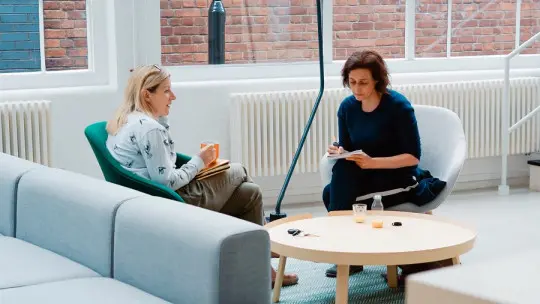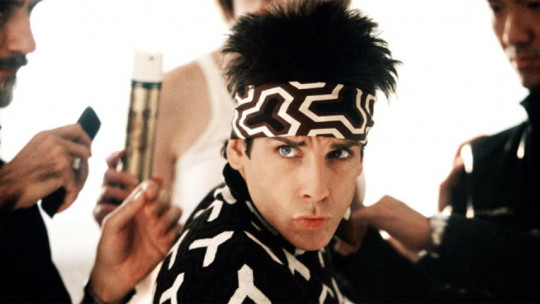
The other day I asked a colleague: “How are you? How are you?” as we each walked to the opposite side down the hallway. He half smiled as we passed each other and, without saying a word, I noticed that his eyes were getting streaked… At that moment I paused in my walk, I stopped and reached out my hand to touch his shoulder as a sign of affection and support, in case he wanted to share something; Almost immediately he burst into tears.
“I can not anymore, Alia. I can not anymore”. Her words were interrupted, and her crying turned into successive tears; Although she made an effort to contain them, she couldn’t, she was uncontrollable. Ana was inconsolable. At that precise moment I realized that it was her: Ana, the one who always has a word of encouragement for others, an unwavering optimism.
Living on autopilot
The days go by and we face life, the issues we have to attend to, the comings and goings of our circumstances: doing what ‘has to be done’, going up, going down, entering, leaving, solving… work, the house, the children, the partner, the family in general, the father or mother or both. Aspects that require attention and affection.
And we can, and we do it without even asking ourselves how we are inside We know we are capable of facing the multiple challenges of everyday life and moving forward. Because until now we have done it.
And I wonder, where are we ourselves? Where am “I” as a human being who feels and suffers and has the right to feel how he is?
The importance of psychological self-care
We are not machines of making and undoing We are not automatons that solve the events of life. We have emotions. We feel. We are human beings who “carry” our backpack with our days of life: each day lived in our skin, our own story; unique, non-transferable.
Today we have a sense of ourselves because we have lived each of those experiences that we have faced (or not). And we have every right to feel how we feel: whatever it may be, euphoric and full of energy or exhausted and unwilling to continue.
For me, this meeting with Ana is an example of what happens to us inside and we do not pay attention because life surpasses us. And there is no time to look inside to stay a few minutes… Just a few minutes! in what hurts, or what exhausts, or what angers, or even in what makes us happy and what we like.
That’s why I wonder if well-being is the lack of problems A resounding “no” is my answer. After so many years accompanying people of different cultures, races, genders and economic, political, sexual, social conditions and a long etcetera of diversity… I can only say “no”. It is not the absence of problems that makes us happy; It is the ability to face them, which we can learn, first of all and above all, by listening to ourselves.
A life worth living
The general well-being that we feel individually has a basic ingredient: knowing oneself, listening to oneself, and also accepting negative emotions, be open to what happens to us, whatever it may be. It is being okay with that part of us that IS, knowing that regardless of what we go through and leads us to BE better or worse, we remain aware of ourselves, of what we think, feel and perceive, and we embrace it as an indisputable part.
It is here where psychology and psychotherapy They can add something to your life. It is already known that there has historically been a taboo regarding visiting a psychologist. It is no longer about “being crazy”, it is about “actively wanting” to be better. To have the courage to take responsibility for how I feel and want to make the most of it.
Psychotherapists provide support in a wide range of situations that are “normal”. The usual thing should be to be able to talk to ‘anyone’ about what happens to me ‘inside’, what weighs me down, what disturbs me or what I cannot do (because we have the right not to be able to). But sometimes we don’t find how or with whom to do it. We believe that we are the only ones who are feeling or thinking ‘that’, when in reality all human beings have so many things in common that go inside… Social expectations limit us and we become superheroes in our own life (and/ or in that of others).
Eye! That can also be very good for a moment, a specific situation, a concrete circumstance because it helps us to continue, it helps to overcome extreme situations that everyday life gives us. The problem arises when we make it a habit
Let us remember that it also strengthens the ability to look in front of what is happening inside; Go inward to observe and stop in the traces of the passage of time, life and our experiences. This allows us to heal them to continue walking lighter, without so much emotional burden that they become ‘overloaded’ by not attending to it.
To end…
The well-being that psychotherapy gives is nothing more than that of to be heard, to feel accompanied while looking inward, even what you don’t like; there is no judgment, only understanding and healing. The saying goes well: “If you can’t beat your enemy, join him.”
Everything that you avoid addressing within yourself becomes your nightmare. Ally yourself, listen to yourself and allow yourself to release what weighs you down.








